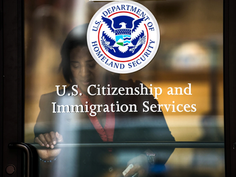Japan and Ukraine hold high-level talks on security and key issues
- Chethana Janith

- Nov 30, 2024
- 5 min read
Updated: Nov 30, 2024
Chethana Janith, Jadetimes Staff
C. Janith is a Jadetimes news reporter covering science and geopolitics.
As Japan and Ukraine mark over three decades of diplomatic relations, the partnership between the two nations has grown significantly, particularly in response to the ongoing conflict in Ukraine.

Japan recognized Ukraine as an independent state on December 28, 1991. Diplomatic relations between the two countries were established on January 26, 1992. Ukraine-Japan relations have developed slowly. Later, political dialogues expanded, and deepening bilateral cooperation began with frequent high-level visits.
Since the beginning of the conflict between Russia and Ukraine, seven telephone conversations between the leaders of Japan and Ukraine, and previous Japanese Prime Minister Fumio Kishida’s visit to Ukraine in March 2023, have effectively upgraded the mutual relationship to a special global partnership.
The Japan-Ukraine Conference, the Foreign Ministers’ Statement on North Korea-Russia Cooperation, the Japan-Ukraine Foreign Ministers’ Meeting (September 23, 2024), the Japan-Ukraine Summit (September 23, 2024), and the two countries’ Foreign Ministers’ Telephone Conversation (September 10, 2024) have been important diplomatic events in their relations in recent years.
In recent months, the then-Japanese Prime Minister and the Ukrainian President agreed on an information security treaty in New York in September.
After Japanese Prime Minister Shigeru Ishiba took office last month, Japanese Foreign Minister Takeshi Iwaya visited Ukraine in November 2024. Along with shared concerns about military cooperation between Moscow and Pyongyang, the two countries’ agreement on high-level bilateral foreign and defense talks and strengthening security information sharing between the two countries is another important step in strengthening relations.
Key variables in strengthening relations
Since 2014, Japan has supported Ukraine in several key areas: economic support, mutual aid and cooperation with international organizations, financial and humanitarian assistance, and high-level visits, but Tokyo has not taken a hardline anti-Moscow stance and has also considered collaboration with Russia in economic and security areas.
The outbreak of the conflict between Russia and Ukraine has triggered a widespread anti-Russian stance in Japan. In 2022, Japan announced punitive sanctions against Russia and expanded its commitment to Ukraine.
In March 2023, former Japanese Prime Minister Kishida Fumio (concurrent with the Xi-Putin meeting) became the first Japanese leader to visit a conflict zone (Ukraine) since World War II.
He condemned Russia’s involvement in the Ukraine conflict, calling it an “outrageous act that undermines the foundations of international order.” After the leaders’ meeting, a joint statement on a special global partnership was signed.
Also in May 2023, Volodymyr Zelenskyy visited Japan to attend the G7 summit, and further steps were taken to assist Ukraine. Interparliamentary talks between the two countries in October 2022, September 2022, and May 2023 were accompanied by pledges of Japanese assistance to Ukraine.
Indeed, over the past three years, mutual approaches and positions on many international issues have laid the foundation for development across all spectrums of relations.
Geopolitically, projecting an image of a more responsible global player, a departure from traditional foreign policy trends, and a significant shift in its approach to international crises are some of the reasons for Tokyo’s recent policy towards Ukraine.
Japan is concerned about Russia’s increased support for North Korea, as well as the growing alignment between Moscow and Beijing in East Asia and the South China Sea. Prime Minister Kishida’s previous claim that “today’s Ukraine may be tomorrow’s East Asia” can be seen in this context.
Recent relations between Russia and North Korea also contribute to Japan’s stronger support for Ukraine. China is seen by Japanese elites as a major threat. From Japan’s perspective, supporting Ukraine and pressuring Russia to deter China from aggressive actions in the Pacific are also useful.
Japan sees Russia’s approach in Ukraine as a threat not only to European security but also to the world and the Pacific. Therefore, by strengthening its alliance with the United States, it has expanded its partnerships with other key countries and NATO members.
Therefore, Japan has expanded its relations with the European Union and NATO by increasing defense spending by 2027 and the largest defense budget in the world, updating its national security policies.
Russophobia plays an important role in Japan’s approach to Ukraine. Japan’s position on supporting the sovereignty and territorial integrity of Ukraine, condemning Russia’s accession of Crimea is while, Japan has a long history of territorial disputes with Russia.
This is while Ukraine has been fully on Tokyo’s side since October 2022 in the Russia-Japan dispute over the Kuril Islands.
In the military and security dimension, in the early months of the conflict between Russia and Ukraine, Japan provided Ukraine with military vehicles, fire-fighting vests, and drones. Some Japanese even wanted to participate in the conflict.
Also, apart from equipment such as generators, mine-detecting equipment, and technical training, the announcement of the transfer of Japanese Patriot missiles to the United States directly and indirectly helped strengthen Ukraine.
On the sidelines of the G7 summit, the leaders of Japan and Ukraine signed the “Agreement on Support for Ukraine and Cooperation between the Governments of Japan and Ukraine” in June 2024. The agreement covers areas of support, cooperation, security and defense, support and recovery, and reconstruction under Japanese law.
In a way, Japan is the first non-NATO country to sign a bilateral security agreement with Ukraine and has been cooperating with the Ukrainian Defense Contact Group.
The new Japanese government has also been engaged in a high-level security dialogue, strengthening bilateral information sharing and defense coordination with Kyiv and countering Russia’s power.
In another dimension, consistent with Japan’s Blue Book approach, the country has taken decisive financial and trade steps against Russia. Since 2014, Japan has designed projects in Ukraine with a wide range of international organizations. However, since February 2022, bilateral and multilateral assistance has also increased significantly.
Japan has become one of the largest donors of aid to Ukraine, pledging nearly $12 billion in support through loans, grants, and debt relief measures, agreeing to reduce Ukraine’s debt.
In February 2024, both Japan and Ukraine hosted the Japan-Ukraine Conference on Promoting Economic Growth and Reconstruction and signed 56 agreements covering various sectors such as infrastructure, energy, agriculture, and information technology.
Japan’s approach and assistance also include improving the human condition, developing the agricultural, digital, and innovative manufacturing sectors, and rebuilding critical infrastructure such as transport and energy, green transition, and Ukrainian industry.
The expansion of Japanese companies and Japanese foreign direct investment (FDI) in Ukraine, encouraging private sector investment, and developing infrastructure for the post-war period are also part of the unwavering support for Ukraine. Japan has also assisted Ukrainian agriculture to restore Europe’s bread basket and its food security. In this regard, economic relations and trade volume between Japan and Ukraine have developed, with a positive trend reaching $513.3 million in the first half of 2024.
Obstacles and prospects
Japan and Ukraine are geographically distant countries, but Japan aims to create long-term partners in the future. However, strengthening the strategic partnership between Japan and Ukraine is likely to strengthen relations through closer coordination on the roadmap for bilateral cooperation, joint economic projects, and expansion of defense cooperation (joint military exercises and research and development or production).
Russian President Vladimir Putin stressed on November 7 that Russia is ready for peace talks with Ukraine. In the meantime, Trump can put pressure on Kyiv at the negotiating table with Moscow to end the conflict in Ukraine.
Meanwhile, although the Group of Seven (G7) including Japan has pledged in statements to provide unwavering support to Ukraine, Japan faces many limitations and cannot pursue a much tougher approach against Moscow in the Ukrainian crisis.
In addition, the limitations of Japan’s constitution and public opposition to possible tougher approaches against Russia could pose challenges to any full military and defense coordination between Tokyo and Kyiv. Japan will also be subject to the West’s and Washington’s views on this issue in terms of its level of support for Ukraine.
From a pragmatic perspective, Japan is heavily dependent on imported energy, and apart from the role of Russian gas, intensifying cooperation and relations with Ukraine in wartime could contribute to the deterioration of Moscow-Tokyo relations, the severance of economic ties, and the further away from signing a formal Russia-Japan peace treaty.











































Comments